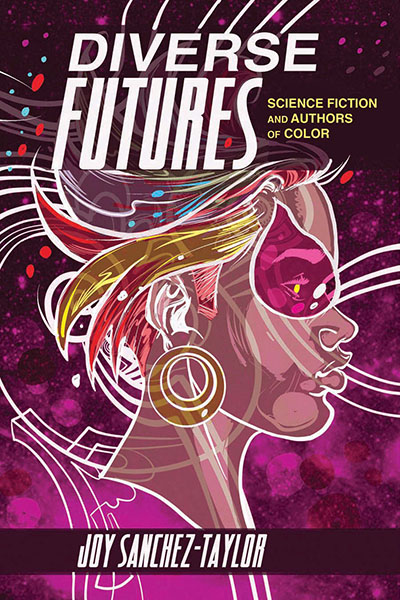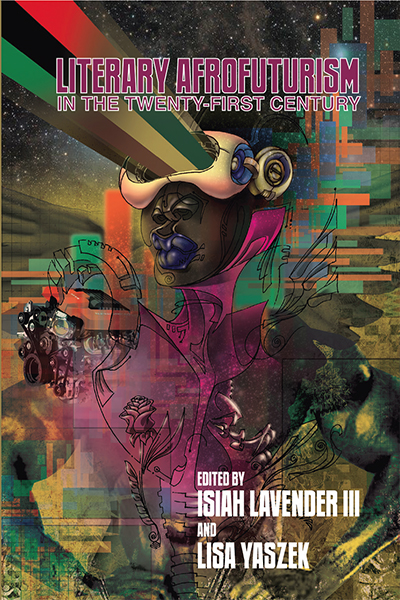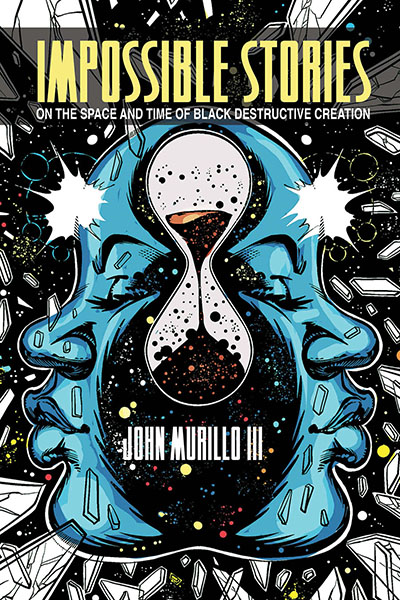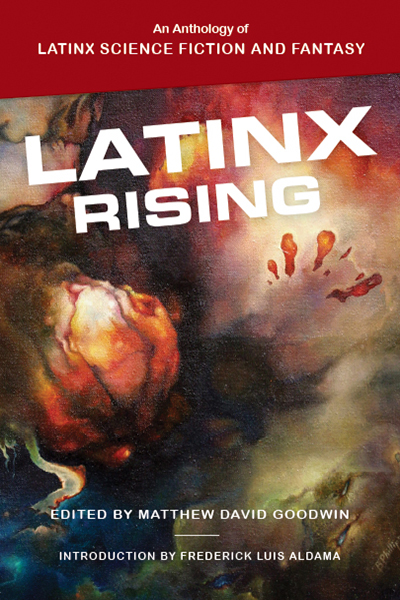Winner, 2021 Northeast Popular Culture Association’s Peter C. Rollins Book Prize
“Joy Sanchez Taylor’s Diverse Futures: Science Fiction and Authors of Color offers a welcome contribution to literary and cultural criticism on science fiction . . . As someone who also struggled to find myself in the predominantly white-authored canonical texts English majors studies, this is exactly the kind of monograph I would have wanted to encounter as a student.” —Frances Tran, American Literary History
“Sanchez-Taylor provides a delectable sampling of alternative futures created by authors of color while examining the roots of race and ethnicity in science fiction. Real food for thought.” —Isiah Lavender III, author of Afrofuturism Rising: The Literary Prehistory of a Movement
“Sanchez-Taylor’s Diverse Futures is a love song to contemporary science fiction writers of color, exploring how their varied and multitudinous redeployments of such familiar tropes as alien invasion, mutation and genetic engineering, and apocalypse can help us take the future back from white supremacy.” —Gerry Canavan, Marquette University
Diverse Futures: Science Fiction and Authors of Color examines the contributions of late-twentieth- and twenty-first-century US and Canadian science fiction authors of color. By looking at the intersections among science fiction authors of multiple races and ethnicities, Joy Sanchez-Taylor seeks to explain how these authors of color are juxtaposing tropes of science fiction with specific cultural references to comment on issues of inclusiveness in Eurowestern cultures. The central argument of this work is that these authors are challenging science fiction’s history of Eurocentric representation through the depiction of communities of color in fantastic or futuristic settings, specifically by using cognitive estrangement and the inclusion of non-Eurowestern cultural beliefs and practices to comment on the alienation of racially dominated groups. By exploring science fiction tropes—such as first contact, genetic modification, post-apocalyptic landscapes, and advanced technologies in the works of Octavia E. Butler, Ted Chiang, Sabrina Vourvoulias, and many others—Sanchez-Taylor demonstrates how authors of various races and ethnicities write science fiction that pays homage to the genre while also creating a more diverse and inclusive portrait of the future.
“Joy Sanchez-Taylor’s contribution, Diverse Futures: Science Fiction and Authors of Color, is particularly important. It is wide-ranging in its coverage, dealing with works by Black, Latinx, Indigenous, and Asian Americans, and doing so in clear, jargon-free prose, always careful to define terms. It would be a suitable companion to a wide range of audiences: fans, scholars, undergraduates, graduate students, and stodgy old professors.” —Joan Gordon, Science Fiction Studies
“[Diverse Futures] does impressive work to lay out its materials, introducing so many SF authors and critics (some of whom have never been written about in this way) and letting the texts speak for themselves along the way. It is an important index for SF scholars interested in thinking deeply about BIPOC SF authors, SF publishing, and SF criticism.” —Brent Ryan Bellamy, Fafnir – Nordic Journal of Science Fiction and Fantasy Research
“By probing works of science fiction by authors of color, Joy Sanchez-Taylor’s Diverse Futures addresses an incredibly necessary missing facet of science fiction literature and criticism. … It should also be on the recommended reading list for any science fiction module, as it serves as a fantastic primer for any scholar of science fiction who wishes to approach the genre with postcolonial conscientiousness.” —C. Palmer-Patel, SFRA Review
“Joy Sanchez-Taylor’s Diverse Futures: Science Fiction and Authors of Color hits a sought-after middle point between a work long overdue and a study that could not be more relevant to our current cultural moment. … Every bit of it needs to be heard and heard again … A love letter to what has been done, a literary study of what might be, and a survey of American race and [science fiction] in the twenty-first century.” —Alexandria Nunn, Fantastika Review

Joy Sanchez-Taylor is Associate Professor of English at LaGuardia Community College.
(Photo credit: Sam Taylor)
Contents
Introduction “An Image of Tomorrow”
Chapter 1 Space Travel and First Contact Narratives
Chapter 2 Race, Genetics, and Science Fiction
Chapter 3 The Apocalypse Has Already Come: Post-Apocalyptic Landscapes
Chapter 4 “Our Knowledge Is Not Primitive”: Indigenous and Eurowestern Science
Conclusion “How Long ’Til Black Future Month?”
Bibliography
Index





